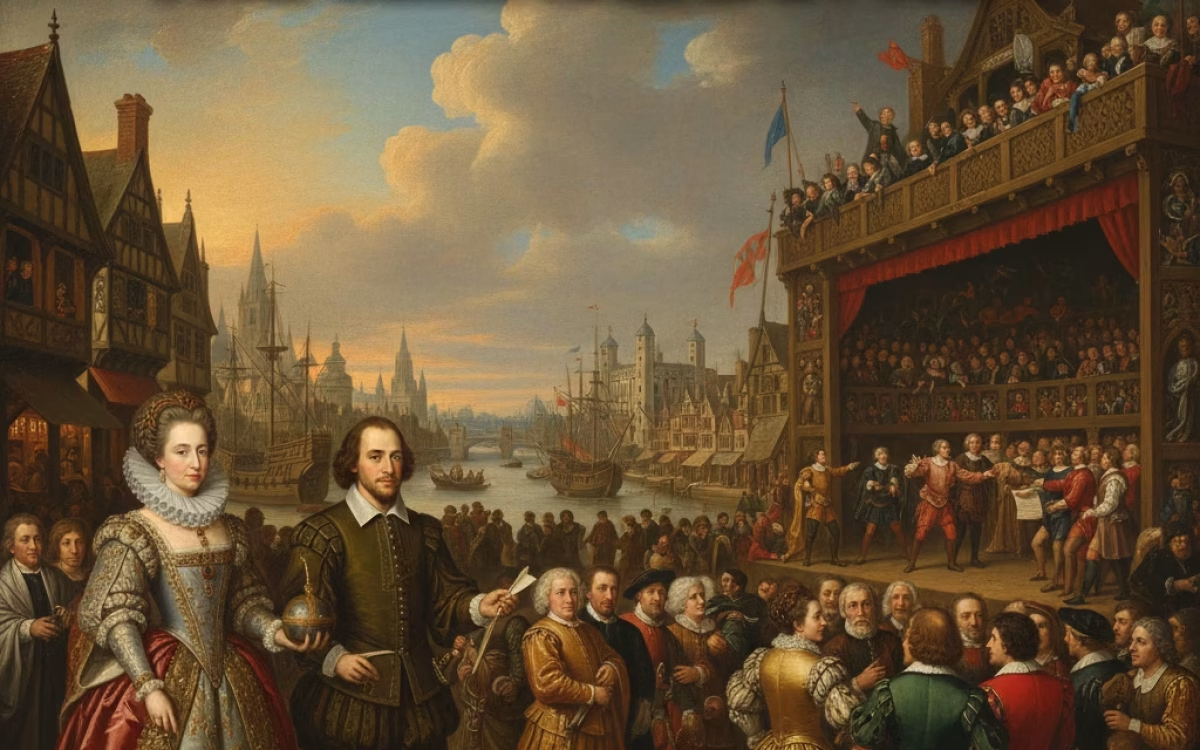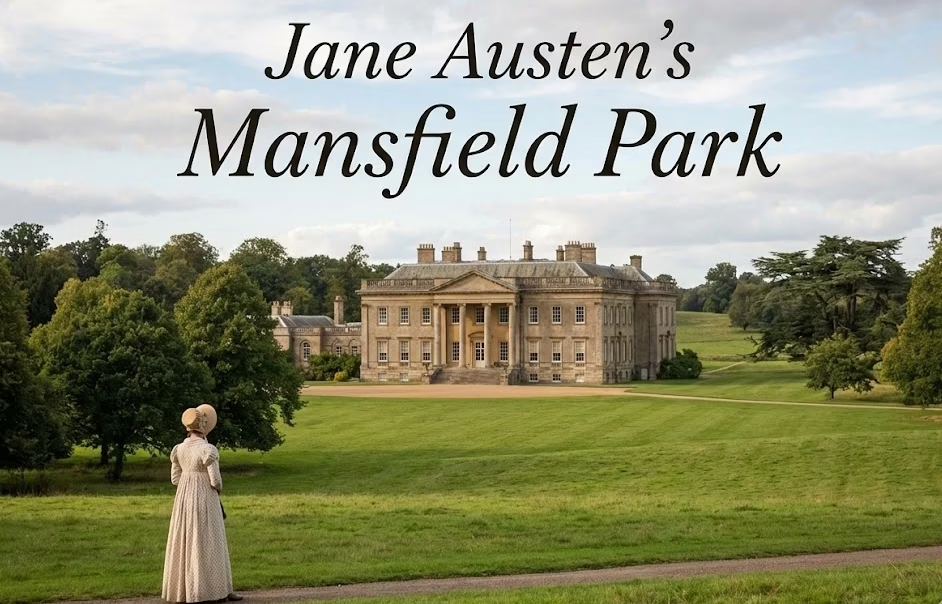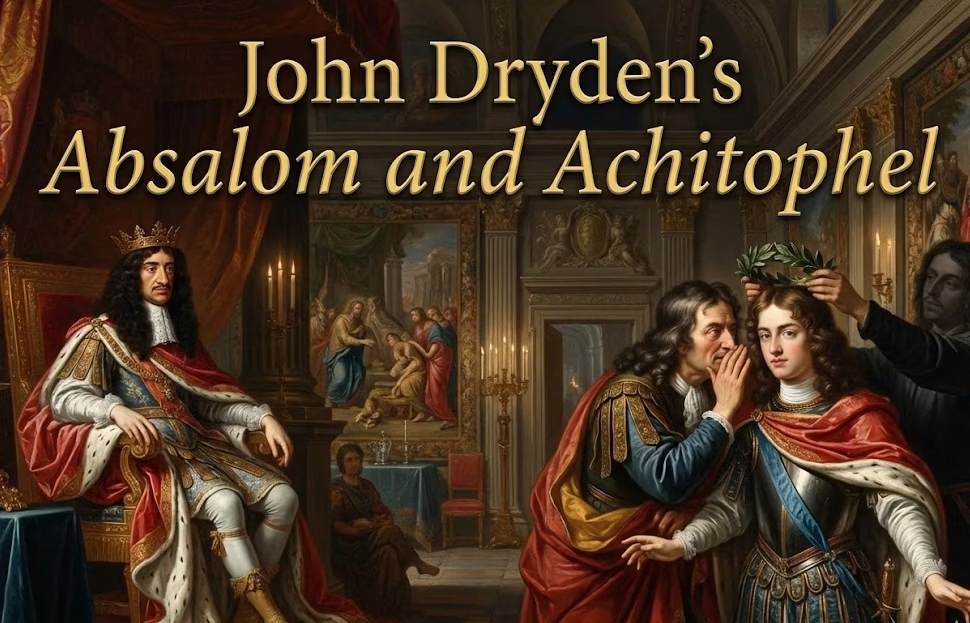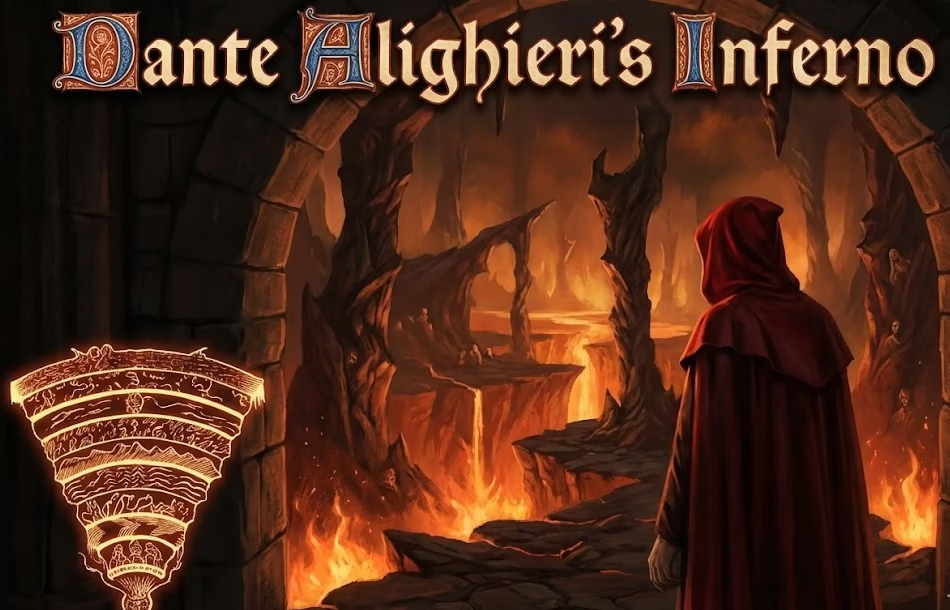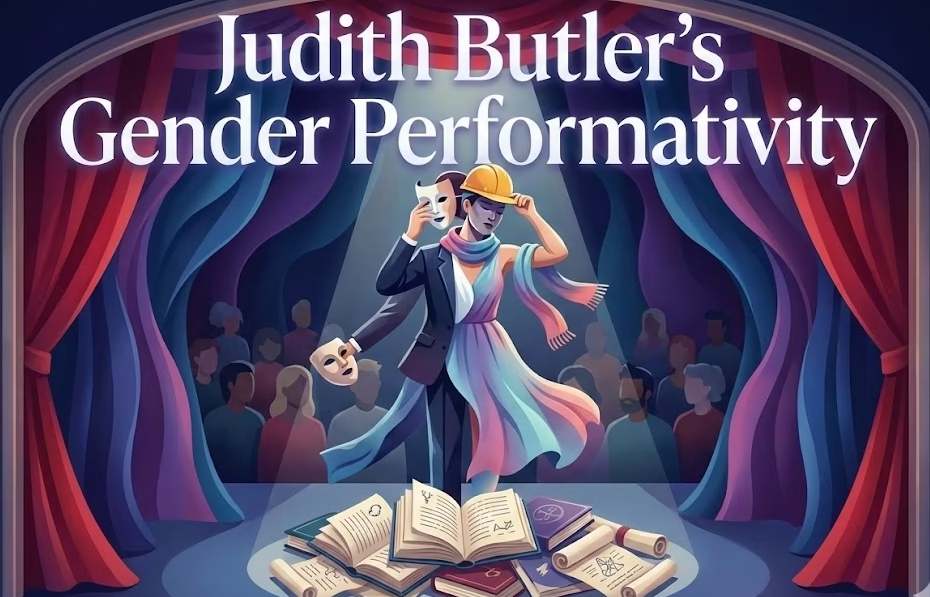INTRODUCTION
The Elizabethan Age (1558–1603), named after Queen Elizabeth I, stands as a remarkable period in English history marked by profound cultural, political, and literary achievements. This era, often regarded as the “Golden Age” of English literature, invites a detailed critical analysis for its exceptional contributions to the Renaissance and its lasting influence on subsequent literary traditions.
Historical and Cultural Context
The Elizabethan Age unfolded during a time of relative political stability, religious consolidation, and national pride. Elizabeth I’s reign unified a nation fraught with sectarian conflict by establishing the Church of England, balancing Protestant reforms with tolerance toward Catholics. This political and religious stabilisation was vital in fostering an environment where the arts could flourish. The defeat of the Spanish Armada in 1588 further emboldened national self-confidence and cultural patriotism, fuelling the creative energies seen in literature and drama. LITERATURE STUDY NOTES
Literary Flourishing and Influence
Elizabethan literature is deeply rooted in Renaissance humanism, a key intellectual movement that emphasised the study of classical antiquity, human potential, and empirical observation. This period saw English literature transition from medieval forms to more sophisticated, human-centred ideals. Writers like Sir Philip Sidney and Edmund Spenser demonstrated this shift in their poetry, blending classical allusion with contemporary themes of virtue, love, and honour.
Of paramount importance is the development of drama as a major literary form. Public playhouses like The Globe Theatre became vibrant cultural hubs. Playwrights such as William Shakespeare and Christopher Marlowe elevated English drama through innovative use of blank verse, complex character development, and psychological depth. Shakespeare’s mastery in exploring human nature, morality, and society set a high watermark for not just Elizabethan theatre but world literature.
Literary Themes
Humanism and Individualism
Elizabethan literature showcases a marked shift toward human-centred concerns. Influenced by Renaissance humanism, writers explored the complexity of the individual, the capacity for moral reasoning, and existential questions that linger even today. Shakespeare’s tragedies—particularly Hamlet—probe deep into the psyche of their characters, dissecting motives, dilemmas, and the struggle for meaning.
Love, Desire, and Beauty
The sonnet tradition flourished spectacularly. Poets such as Sidney, Spenser, and Shakespeare evolved the form, typically focusing on themes of unattainable love, idealised beauty, and passion’s fleeting nature. The Elizabethan sonnet’s 14-line structure allowed for emotional expression within a tightly wrought format, balancing discipline with creativity.
Political and Allegorical Writing
Elizabethan poetry and drama often ventured beyond mere entertainment, doubling as platforms for political commentary or moral instruction. Edmund Spenser’s The Faerie Queene, for instance, stands out as a monumental allegory. It celebrates virtues, extols Queen Elizabeth I, and subtly promotes the ideology of the Tudor monarchy. Writers wielded allegory to reflect—or sometimes challenge—court politics and national concerns.
The Elizabethan Age : An Overview
Historical Background
The table below encapsulates the rich diversity of authors, landmark works, and key movements in the English Renaissance’s literary flourishing:
| Author | Important Works | Approximate Publication Year | Literary Movements/Genres | Key Details |
|---|---|---|---|---|
| William Shakespeare | Hamlet, Macbeth, Romeo and Juliet, A Midsummer Night’s Dream | 1590s–1610s | Elizabethan Drama, Shakespearean Tragedy & Comedy | Greatest Elizabethan playwright; master of dramatic verse and complex characters. |
| Edmund Spenser | The Faerie Queene | 1590 | Elizabethan Poetry, Allegory | Epic allegorical poem celebrating virtues and Queen Elizabeth I; major poetic figure. |
| Sir Philip Sidney | Astrophel and Stella (sonnet sequence), The Defense of Poesy | 1580s–1595 | Elizabethan Poetry, Renaissance Humanism | Renowned poet and critic; championed poetry as noble art form. |
| Christopher Marlowe | Doctor Faustus, The Passionate Shepherd to His Love | 1588–1592 | Elizabethan Drama, Pastoral Poetry | Influential tragic playwright; introduced blank verse; pastoral lyricist. |
| Ben Jonson | Volpone, Every Man in His Humour | Early 1600s | Elizabethan/ Jacobean Drama, Satire | Known for satirical plays and classical influences; rival of Shakespeare. |
| Sir Thomas Wyatt | Various sonnets and translations | Early 1500s (precursor) | Early English Sonnet, Renaissance Poetry | Introduced Italian sonnet form to English literature, influencing Elizabethan poets. |
| John Donne | Holy Sonnets, Poems | Early 1600s | Metaphysical Poetry | Known for complex metaphors and spiritual themes; transitional figure post-Elizabethan. |
| Thomas Kyd | The Spanish Tragedy | 1587 | Elizabethan Revenge Tragedy | Popularised revenge tragedy genre, influencing Shakespeare. |
LITERARY MOVEMENTS
| Literary Movements/Genres | Key Features | Example Works/Authors |
|---|---|---|
| Elizabethan Drama | Public theatre culture, blank verse, complex characters, mix of tragedy and comedy | Shakespeare’s plays, Marlowe’s Doctor Faustus |
| Renaissance Humanism | Emphasis on classical learning, human potential, moral and philosophical exploration | Sidney’s Defense of Poesy, Spenser’s poetry |
| Sonnet Tradition | 14-line poem with strict rhyme scheme, themes of love and beauty | Shakespeare, Sidney, Spenser |
| Allegory and Epic Poetry | Symbolic narratives promoting virtues and ideals | Spenser’s The Faerie Queene |
| Pastoral Poetry | Idealisation of rural life and nature | Marlowe’s The Passionate Shepherd to His Love |
| Revenge Tragedy | Themes of revenge, justice, and morality | Kyd’s The Spanish Tragedy |
| Metaphysical Poetry | Intellectual playfulness, wit, spiritual themes | John Donne’s Holy Sonnets |
Quiz
1. When did the Elizabethan Age officially begin and end?
Answer: a) 1558–1603
Explanation: The Elizabethan Age corresponds with Queen Elizabeth I’s reign from 1558 to 1603, marking a golden era of English literature and culture.
2. Who was the reigning monarch during the Elizabethan period?
Answer: a) Queen Elizabeth I
Explanation: Queen Elizabeth I was the monarch who presided over this period, bringing stability and patronage to the arts.
3. What significant naval event boosted England’s national pride during this age?
Answer: a) Defeat of the Spanish Armada
Explanation: The defeat of the Spanish Armada in 1588 was a critical moment of national pride and symbolized England’s rising power.
4. What was the name of the famous public theatre associated with the Elizabethan era?
Answer: a) The Globe Theatre
Explanation: The Globe Theatre in London became synonymous with Elizabethan drama and Shakespeare’s plays.
5. Which religious institution was established under Elizabeth I’s rule?
Answer: a) Church of England
Explanation: To balance Protestant and Catholic factions, Elizabeth I established the Church of England as a moderate form of Protestantism.
6. Who is widely considered the greatest playwright of the Elizabethan Age?
Answer: a) William Shakespeare
Explanation: Shakespeare’s dramatic works defined the era and profoundly influenced English literature.
7. What poetic form reached great popularity during this period, notably used by Sidney and Shakespeare?
Answer: a) Sonnet
Explanation: The sonnet, particularly the English or Shakespearean sonnet, became a major poetic form of Elizabethan literature.
8. Which epic poem was written by Edmund Spenser?
Answer: a) The Faerie Queene
Explanation: This allegorical epic celebrates virtues and Elizabeth I herself, representing the height of Elizabethan poetic achievement.
9. Who wrote the sonnet sequence “Astrophel and Stella”?
Answer: a) Sir Philip Sidney
Explanation: Sidney’s “Astrophel and Stella” explores themes of love and desire through a sophisticated sonnet sequence.
10. Who wrote “Doctor Faustus,” an iconic Elizabethan tragedy?
Answer: a) Christopher Marlowe
Explanation: Marlowe’s play explores ambition, knowledge, and damnation, embodying Elizabethan dramatic themes.
11. Which philosophical movement influenced Elizabethan literature emphasizing human potential?
Answer: a) Humanism
Explanation: Renaissance humanism celebrated classical learning and human achievement, deeply shaping literature of the time.
12. What type of verse was commonly used in Elizabethan drama for natural dialogue?
Answer: a) Blank verse
Explanation: Unrhymed iambic pentameter (blank verse) allowed flexible, elevated speech ideal for dramatic dialogue.
13. What symbolic figure did Queen Elizabeth I represent in literature?
Answer: a) Purity and divine right to rule
Explanation: Known as the “Virgin Queen,” Elizabeth symbolised purity and divine monarchy in literary works.
14. How many lines are in a traditional Elizabethan sonnet?
Answer: a) 14
Explanation: The sonnet is a 14-line poem with a set rhyme scheme, often used to explore themes of love and beauty.
15. For which cultural movement did the Elizabethan Age laid the foundation?
Answer: a) The English Renaissance
Explanation: This era marked the flourishing of arts and humanist thinking, key characteristics of the English Renaissance.
16. Which Elizabethan poet wrote the pastoral poem “The Passionate Shepherd to His Love”?
Answer: a) Christopher Marlowe
Explanation: This poem idealizes rural life and seduction, reflecting the pastoral literary tradition.
17. What is the rhyme scheme of a Shakespearean sonnet?
Answer: b) ABABCDCDEFEFGG
Explanation: This scheme divides the sonnet into three quatrains and a final rhymed couplet.
18. Who is credited with introducing the sonnet form to English literature?
Answer: a) Sir Thomas Wyatt
Explanation: Wyatt adapted the Italian sonnet form for English, influencing Elizabethan poets.
19. Which Elizabethan playwright is known for satirical comedies like “Volpone”?
Answer: b) Ben Jonson
Explanation: Jonson’s works blend humour and social critique, complementing Shakespeare’s tragedies and histories.
20. What is a major theme in Elizabethan sonnets?
Answer: b) Courtly love and idealized beauty
Explanation: Sonnets often explore unattainable love, beauty, and emotional longing.
21. Which poet defended poetry as a noble form of knowledge in “The Defense of Poesy”?
Answer: a) Sir Philip Sidney
Explanation: Sidney’s work legitimized poetry’s intellectual and moral value.
22. What is the central theme of “Doctor Faustus”?
Answer: b) Ambition and the pursuit of knowledge
Explanation: The tragedy grapples with human desire for power and the consequences of overreaching.
23. Who is known for metaphysical poetry exploring love and spirituality?
Answer: b) John Donne
Explanation: Donne’s intricate conceits and intellectual style exemplify metaphysical poetry.
24. Which Elizabethan era poet was killed in a tavern brawl?
Answer: a) Christopher Marlowe
Explanation: His mysterious death adds to the legend surrounding his dramatic life and works.
25. What does “conceit” mean in Elizabethan poetry?
Answer: c) Extended metaphor or comparison
Explanation: Conceits are imaginative, elaborate comparisons often used to express complex ideas.
Impact and Legacy
The Elizabethan Age fundamentally shaped the English literary canon and cultural identity. It laid the groundwork for the English Renaissance, and inspired later movements like the Metaphysical poets and the Jacobean dramatists. The evolution of the English language, enriched with neologisms and flexible expressive possibilities from this age, profoundly influenced modern English. EXPLORE OTHER QUIZ
CONCLUSION
The Elizabethan Age is a multifaceted cultural phenomenon that positioned England at the forefront of Renaissance art and literature. Its rich amalgamation of historical stability, intellectual vigour, and dramatic innovation fostered a remarkable literary heritage that continues to resonate and inspire critical inquiry. This age not only shaped the trajectory of English literature but also reflected the dynamic tensions of a society poised between medieval structures and the modern world.

